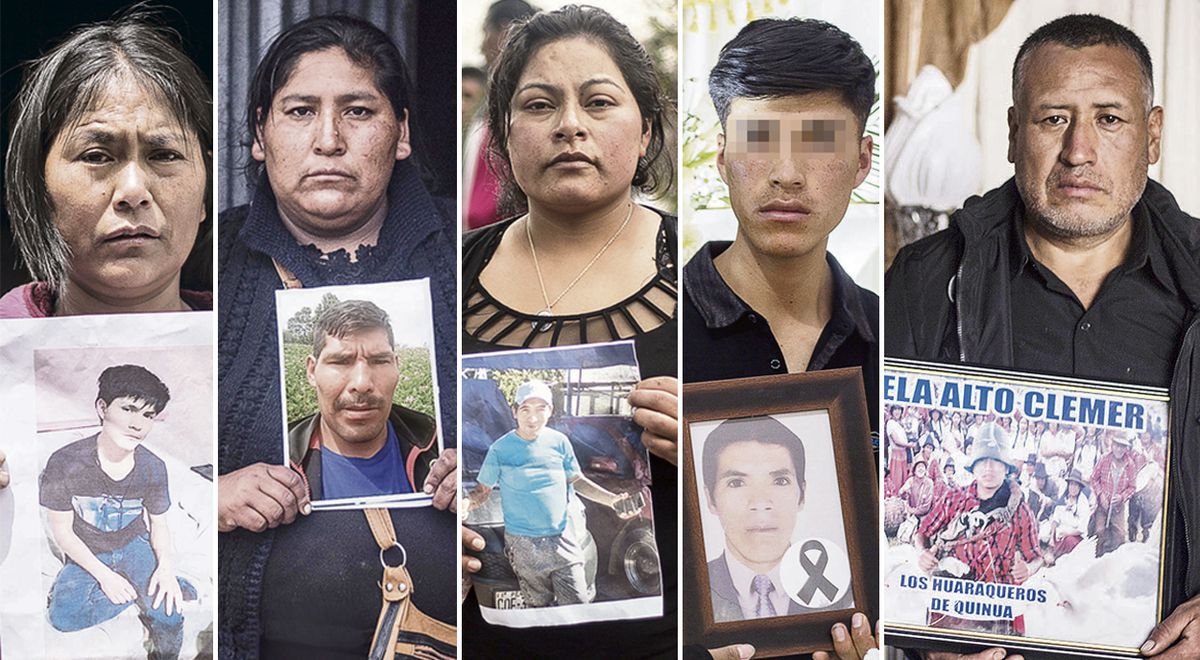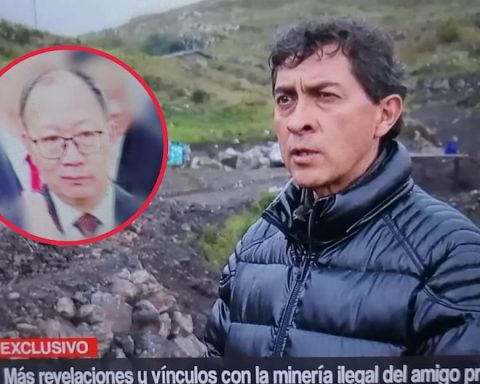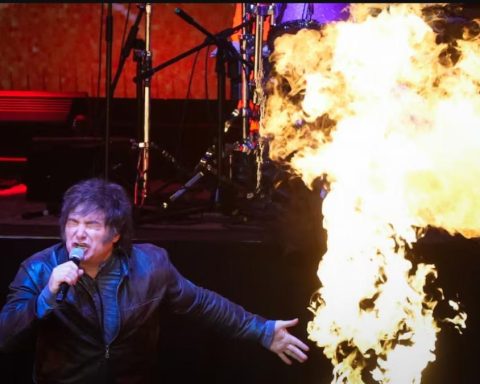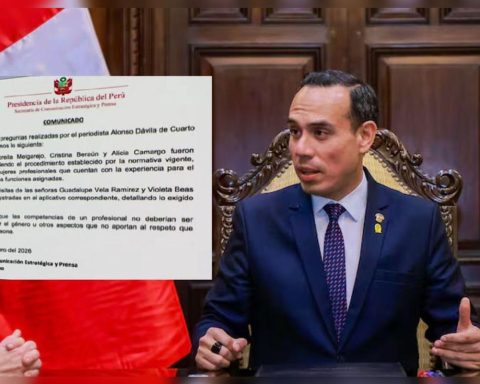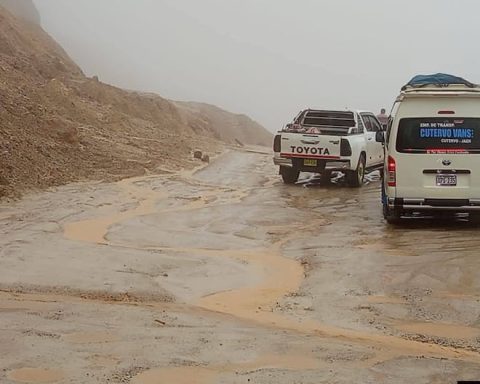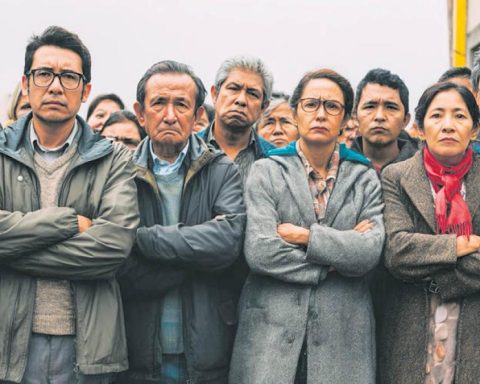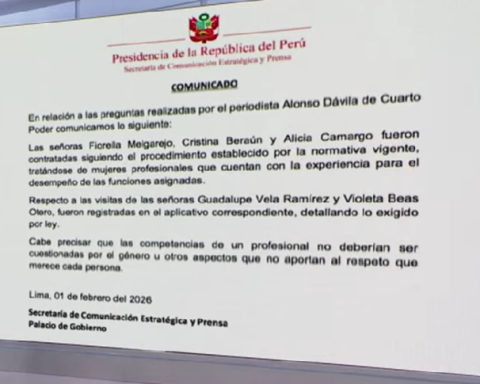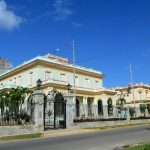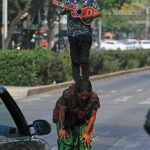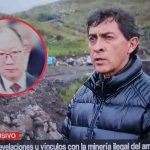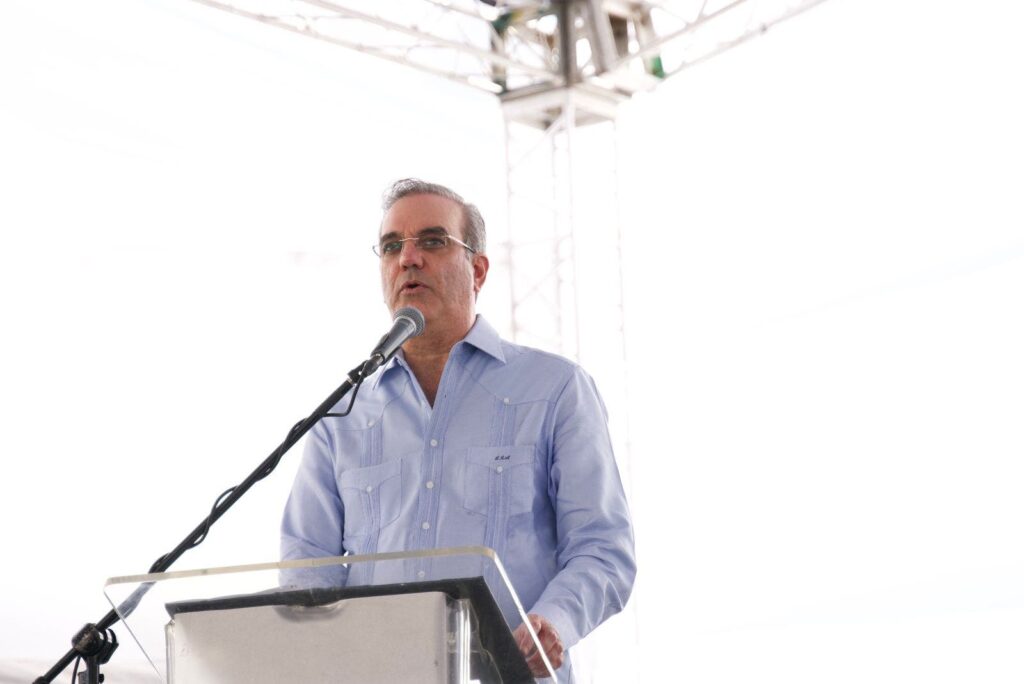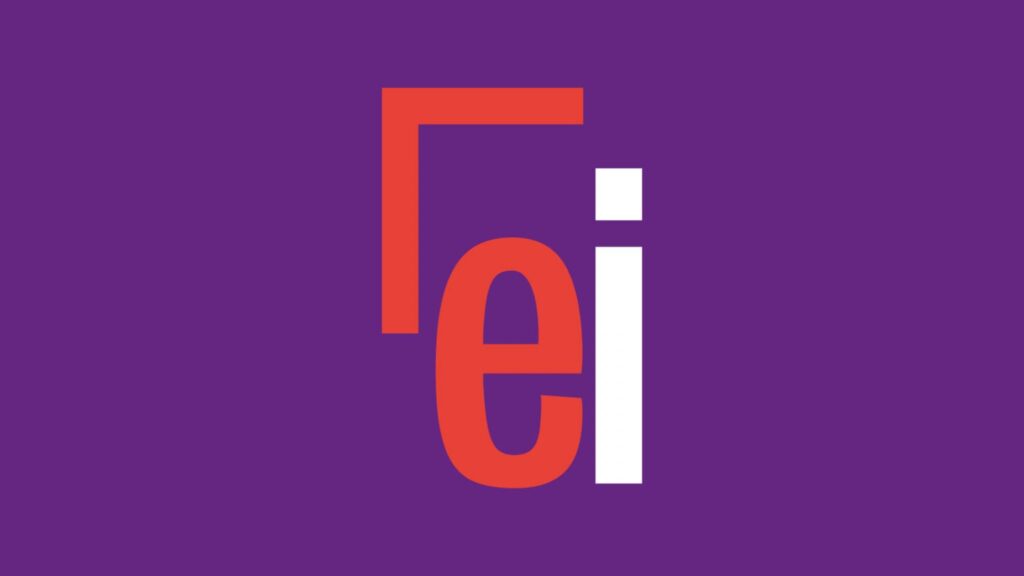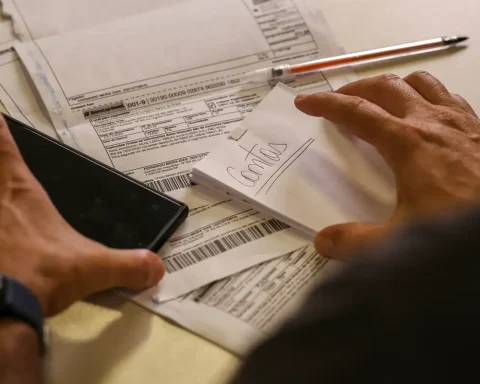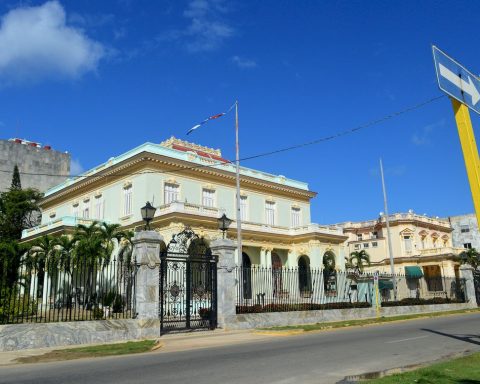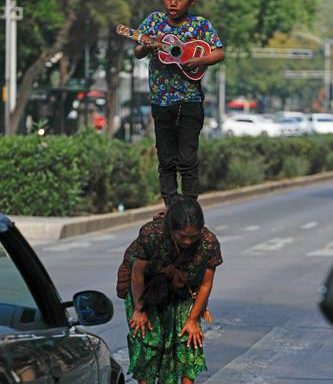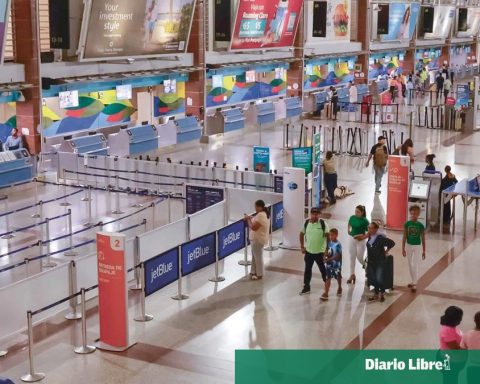By Wilber Huacasi, special envoy
One
— Take care, don’t go out, he told me, they are shooting!
It was the last call that Sheyla Prado Cisneros (18 years old) received from her father, on December 15. By then, five in the afternoon, the military had already left the airport to the surrounding streets. Many youths they ran, amid the whistling of the projectiles.
A soldier settled in a corner and several neighbors saw him shoot directly at the body. Edgar Wilfredo Prado Arango (51), Sheyla’s father, lived just half a block away and saw a young man who was injured. He set out to help him. A witness saw that he came out covering himself with sheet metal, with the conviction that they were only shooting pellets. Mistake. A bullet hit him from behind her while he was trying to provide assistance.
did not participate in protests. He was a father dedicated to transportation. He wanted to help and ended up struck down in front of his house.
Two
— I had lunch with him on December 15, at two in the afternoon. Then we talk and He told me I’m coming back.
Jhovana is the older sister of John Mendoza Huarancca (34 years). They had lunch together. Three hours later she received a call with the tragic news. She went to the hospital. She was told that she was not her. she insisted. she entered. She searched and there, in a room, was her body: “like NN”.
They told Jhovana that her brother, around five in the afternoon, in the middle of the shots, threw himself into a ditch. A soldier approached, saw him and shot him without further ado..
Jhon Mendoza Huarancca managed a small company with Jhovana transportation. With that he covered the expenses of two younger brothers and took care of his mother, a terminal cancer patient. All this before the shot in the thorax that ended her life.
Burial. Relatives said their last goodbye to Jhon Mendoza Huarancca. Photo: diffusion
Three
There is a video in which appears helping the wounded.
David Hancco found out about his brother’s death on social media. The name of Leonardo Hanco Chacca (32 years old) was circulating the same night of December 15, after the anxiety he experienced Ayacucho.
Leonardo had left at five in the morning, to be part of one of the strike pickets. He had said goodbye to his wife Ruth Barcena. The same afternoon of that day, he was shot in the vicinity of the airport. He was transferred to the regional hospital. He underwent surgery. He was giving battle, but perished at dawn on December 17.
native of Espinar, Cusco, he had settled in Ayacucho with his wife Ruth. He dedicated his life to transportation and covered the route to Cangallo and Huancapi. He leaves behind a seven year old daughter.
Four
-I’m going, I’ll be right back.
Seven in the morning. Jhanet Vianca Román Pareja received this brief message from her husband, Raul Garcia Gallo (35 years). His destination was one of the strike pickets in Ayacucho, against Congress and President Dina Boluarte.
She stayed in her adobe home, in the Palacios human settlement. At five in the afternoon he received the call: “Raúl was shot”.
She went to the regional hospital and a coded message from health personnel confirmed the tragedy: “Ma’am, you have to be strong.” She explained to him that she was no longer able to do anything. A bullet had entered her stomach and she had come out of her through her waist.
Raúl García Gallo was a builder. He had three children with Jhanet, now orphans, ages 14, 11 and 9. He had another older son who, paradoxes of life, had served in the Army. The same institution that ended his father’s life.
Five
—Go to the cemetery, it seems that it’s him, your son.
Edith Aguilar Yucra received a call at sunset, when there was already news of deaths and injuries. She lived very close. Three blocks. He came out fast. When she arrived, the ambulance had already picked up her son’s body..
Jose Luis Aguilar Yucra he was 20 years old and had a two-year-old daughter. She that day she had gone to work. Upon her return, at sunset, she walked the usual route and came across the shooting. Witnesses saw that he stuck his head out from a corner and a projectile to the skull left him lying inert.
Six
“I’m leaving now, I have to do my job.” Then I have a championship, I will not reach.
Vilma Sacsara received this last message from her son, Luis Miguel Urbano Sacsara (22 years old), while leaving his home, two blocks from the cemetery. “Be very careful, son, it’s dangerous,” the mother replied..
Luis Miguel was 22 years old. He studied Administration at the private institute CESDE. He left his home at around half past three in the afternoon.
Four hours later, around seven at night, Vilma received a call from the hospital. “Ma’am, are you the mother of Luis Miguel Urbano Sacsara?” She had died with a firearm projectile..
Fired. The remains of Luis Miguel Urbano Sacsara (22 years old) heading to the cemetery. Photo: diffusion
Seven
-Mr, the young man received a bulletThey have already taken it.
Mr. Reider Rojas Jáuregui was concerned about the shooting that had rocked the city. his son, Clemer Fabricio Rojas Garcia (23 years old), had visited her mother, Nilda García, at the Magdalena market around noon. She told him that the March it had been peaceful and that people were already leaving.
But then the shooting was heard. At four in the afternoon, Reider Rojas decided to ring his son’s cell phone. A different voice informed him that they had already taken him to the hospital..
A native of Quinua, Clemer Rojas studied Automotive Mechanics at Senati. For a year he served in the Army.
After the bitter call father and mother went to the regional hospital and identified Clemer’s bodywho was the older of two brothers.
Reider and Nilda seek to recover from the unexpected departure of their eldest son. The next step will be the search for justice. Nilda, the mother, has an additional mission: to defend the honor of her son, whom a national political and media sector tried to label as violent.
Eight
On the rainy afternoon of December 17, a crowd of people linked to religious congregations arrived at the general cemetery of Ayacucho. An immense banner announced another of the nine victims of military repression: Josué Sañudo Quispe (31 years old)..
With rage and indignation, Josué’s father, Don Germán Sañudo, apologized, through the telephone line, for not offering more testimony about his son. And he offered a very serious reason: the stigmatization of an uninformed society that brands, without further reflection, all the victims of violent people.
Brotherhood. Religious communities accompanied the burial of Josué Sañudo Quispe. Photo: diffusion
Nine
“Hello son, how are you?”
“Are you the father?”
-If that happened.
“Your son is in the hospital.
Raúl Ramos Loayza was in Quinoa, an hour from Ayacucho, when he made this call to his son’s cell phone, on December 16, one day after the military shooting.
But the voice of a doctor and the news that he was in the hospital took him by surprise and he immediately called his other daughter to come to the hospital.
The day of the stoppage, the boy had told his mother, Hilaria Aime, that he was going to the cemetery to earn some money. His job was to clean the niches and water the flowers.
The return. Christopher, the 15-year-old victim, fired in his native Quinua. Photo: diffusion
The cemetery is next to the airport, where the military had settled and repressed the groups that had entered with bullets, as part of the regional strike.
It was then that the boy was in the vicinity of the cemetery and received a bullet in the back. His name was Christopher. He was only 15 years old.
